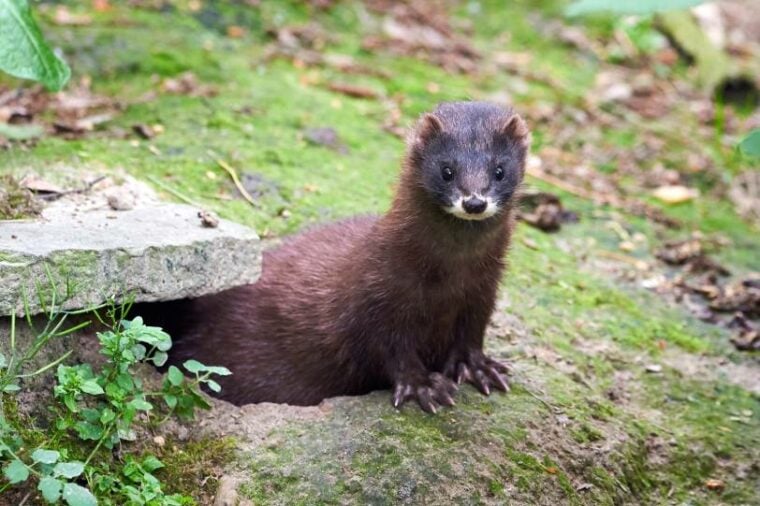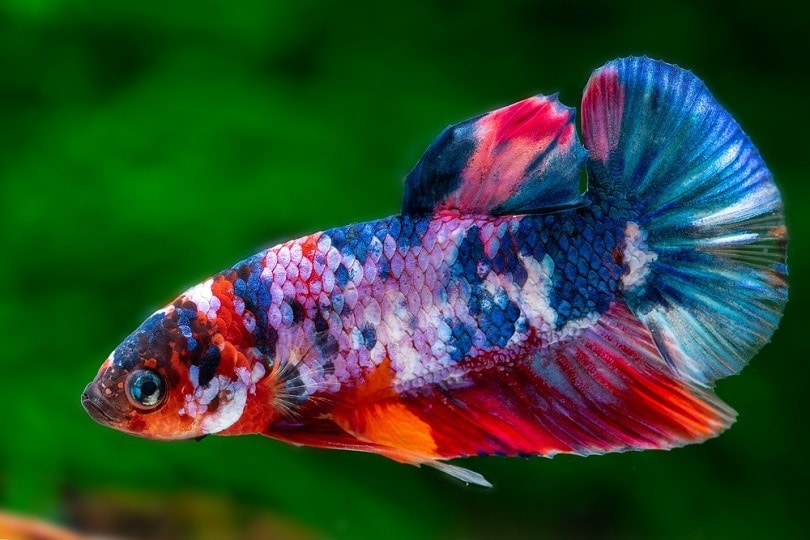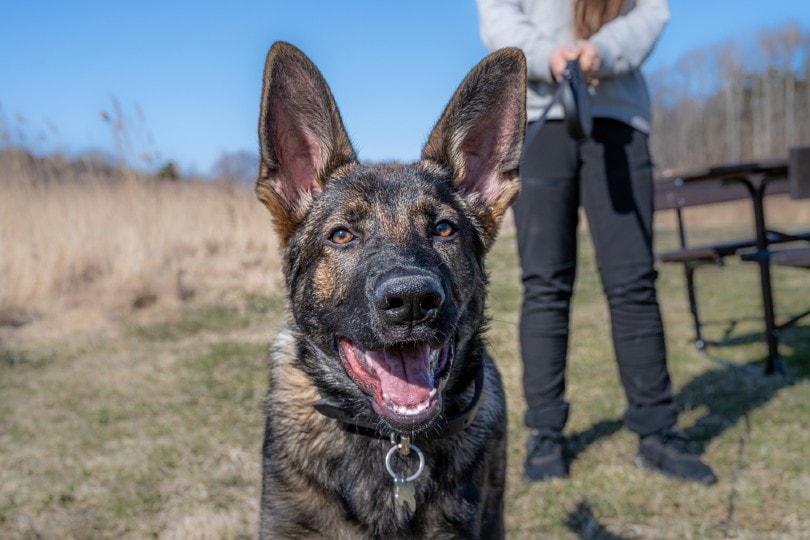
Click to Skip Ahead
Owning exotic animals as pets is far more exhilarating than the normal cat and dog. But there’s a reason why certain animals have been domesticated and others have not. In this post, we discuss the ethics of keeping minks as pets and why, generally, it’s not a good idea.
What Is a Mink?
Minks are part of the weasel family. Valued for their luxurious fur, minks are small, quiet, water-loving animals that resemble a ferret or small otter. Minks are strict carnivores, hunting for their next meal near shorelines. They’re also nocturnal and prefer to remain in solitude unless it’s time to mate.
American minks are a species of least concern, but unfortunately, European minks are in a steady decline.
Although they’re small, don’t be fooled. Minks are ferocious creatures known to take down much larger animals. This is one of the reasons why keeping minks as pets is a controversial debate.

Minks vs. Ferrets: Do the Differences Matter?
As we learn more about minks, we must discuss the differences between them and ferrets. After all, if you can keep a ferret as a pet, why not do the same for a mink?
Although they look similar, ferrets and minks have a few differences. For instance, ferrets are bigger, need more exercise, and live shorter lives. In contrast, minks are smaller, require less exercise, and live longer (even in the wild). Minks also have webbed feet, allowing them to be agile swimmers.
But the biggest difference is in their behaviors. Ferrets are playful, curious, and enjoy human companionship. They don’t care for other pets and will bite when given the chance, but their bites are manageable.
Minks are a different story. They’re not as domesticated or friendly, and their bites are dangerous. With small animals like dogs, cats, rabbits, hamsters, and geckos, minks don’t care about building relationships with them because, naturally, they have no need. Minks will kill another animal out of instinct and even attack people.
Overall, minks play a vital role in the ecosystem and do their best to fulfill that role in the wild.
Minks in Captivity vs. Minks as Pets
Humans indeed raise minks all over the world, but animals raised in captivity and being kept as pets are quite different.
A pet is a companion animal kept for company, emotional support, and entertainment. These animals have highly structured lives without the need to survive.
Humans who raise animals in captivity do so for meat, fur, and scientific research. Many minks are raised on mink fur farms. Other minks are rescued from farms and live the rest of their lives in zoos and sanctuaries. Still, they’re not kept or treated as pets. Their ferocious behaviors remain the same.
Zoos and sanctuaries provide minks an environment with species-specific plants and food necessary for a mink to thrive. It’s unlikely that someone keeping a mink as a pet can provide this level of care to this degree.

Is Owning a Pet Mink Legal?
Every state has different laws involving exotic animals as pets. You would need to check with your local and state laws to see if owning a pet mink is allowed.
In many states, laws regarding minks pertain to furbearers, or people who trap and harvest minks for fur. The laws ensure that the trapping, harvest, and selling of fur are done as ethically as possible.
In some cases, you may have to become a farmer or hunter to own a pet mink. In others, you could just buy a pet mink and that’s that. But double-check with your local and state laws first.
Conclusion
Ultimately, keeping a mink as a pet does more harm than good. Yes, they’re adorable, but they require different habitat needs than ferrets and are very wild. These animals were never meant to be kept as pets.
However, owning a pet mink is legal in some states, so look into what the law states where you live. You might be surprised by what you find.
So, does owning a pet mink make you a bad person? Of course not. We love animals and desire to be close to them. But some animals don’t want to be close to us and perhaps it’s best to respect that boundary.
Featured Image Credit: Adrian Eugen Ciobaniuc, Shutterstock







